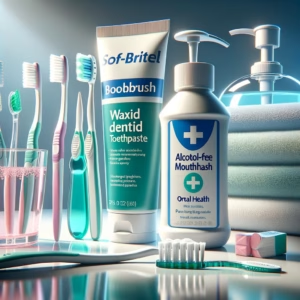Understanding Aging and Oral Health
As individuals age, oral health can decline due to various factors. Common issues faced by seniors include gum disease, which results from plaque buildup and can lead to tooth loss if untreated. Tooth sensitivity often increases due to enamel wear and gum recession. Additionally, conditions like dry mouth, often caused by medications, can exacerbate oral health problems. Regular dental check-ups and good oral hygiene practices are essential for maintaining healthy teeth and gums in later life.

Importance of Regular Dental Check-ups
Routine dental check-ups are crucial for seniors, as they help identify potential issues early on. During these visits, dentists can monitor for signs of gum disease, tooth decay, and oral cancers, which can become more prevalent with age. Preventive care, including cleanings and fluoride treatments, can significantly reduce the risk of serious dental problems. Prioritizing these appointments ensures a healthy smile and enhances overall well-being in Ashburn, VA.
Daily Oral Hygiene Practices
Daily oral hygiene practices for seniors should focus on gentle techniques. Use a soft-bristled toothbrush and fluoride toothpaste, brushing twice daily for at least two minutes, ensuring all surfaces are cleaned. Flossing is vital; consider waxed dental floss or floss picks to ease handling. For those with dry mouth, rinsing with an alcohol-free mouthwash can help. Regular use of dental tools and maintaining hydration can further support oral health.
Nutrition and Dental Health
Nutrition plays a vital role in maintaining oral health, particularly for seniors. Foods rich in calcium, such as dairy products, leafy greens, and almonds, help strengthen teeth and bones. Vitamin C from citrus fruits and bell peppers promotes gum health and fights inflammation. Hydration is crucial, especially for those with dry mouth; water-rich foods like cucumbers and watermelon can aid in moisture retention. A balanced diet supports overall oral hygiene and reduces the risk of gum disease.
Managing Dry Mouth
Managing dry mouth involves several techniques to alleviate discomfort. Staying hydrated is crucial—drink plenty of water throughout the day. Chewing sugar-free gum or sucking on sugar-free candies can stimulate saliva production. Using a humidifier at night can help maintain moisture in the air. Recommended products include saliva substitutes, such as Biotène, and specific mouthwashes designed for dry mouth. Regular dental visits can help address ongoing issues and recommend further solutions.
Conclusion and Resources
To ensure optimal oral health, seniors should prioritize regular dental visits, effective oral hygiene, and awareness of common issues such as gum disease and dry mouth. Resources for support include local dental offices like Ashburn Dental Care and Stone Springs Dental. Both provide specialized services for seniors to address their unique dental needs and maintain overall oral health.




